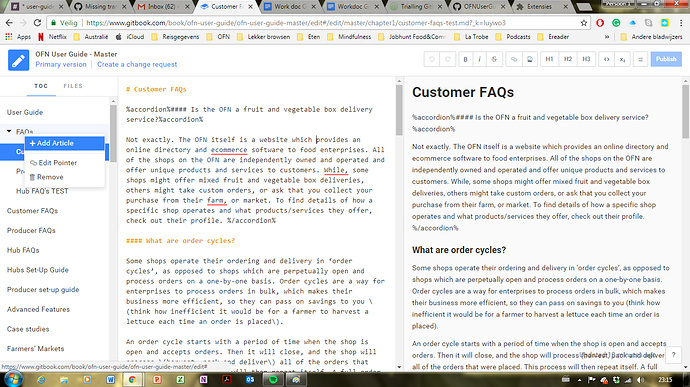

GITBOOK EDITOR OFLINE PDF
pdf looking different to your web version, which might be useful for readability purposes. If you’re familiar with CSS styles, you can also customise separate styles for each format, so you can have your. You also have version control, so individuals/groups could work on different branches/versions, making it a pretty exciting tool for collaborative writing work. In the same way as Github, you can allow your publications to be forked/remixed by others and when you commit/save a change it has associated metadata with author, time date etc. You can import Github, a Word document or HTML making it simple to work with existing material. You can set up your account with standard social media accounts Facebook, Twitter, Google+ to verify authorship but if you also do any code development you can link the account to GitHub creating extra opportunities for publishing documentation.

What draws you in is the thoughtfulness that has gone into the design and the simplicity.

Here’s a video overview of the Gitbook web interface when you set up a new project. I’ve written about it in a post on inclusivity, but it really deserves it’s own post and some wider recognition. A few months ago I stumbled across Gitbook, a tool that allows you to publish content as Markdown/HTML and then access it in a range of formats appropriate to web, print and mobile.


 0 kommentar(er)
0 kommentar(er)
